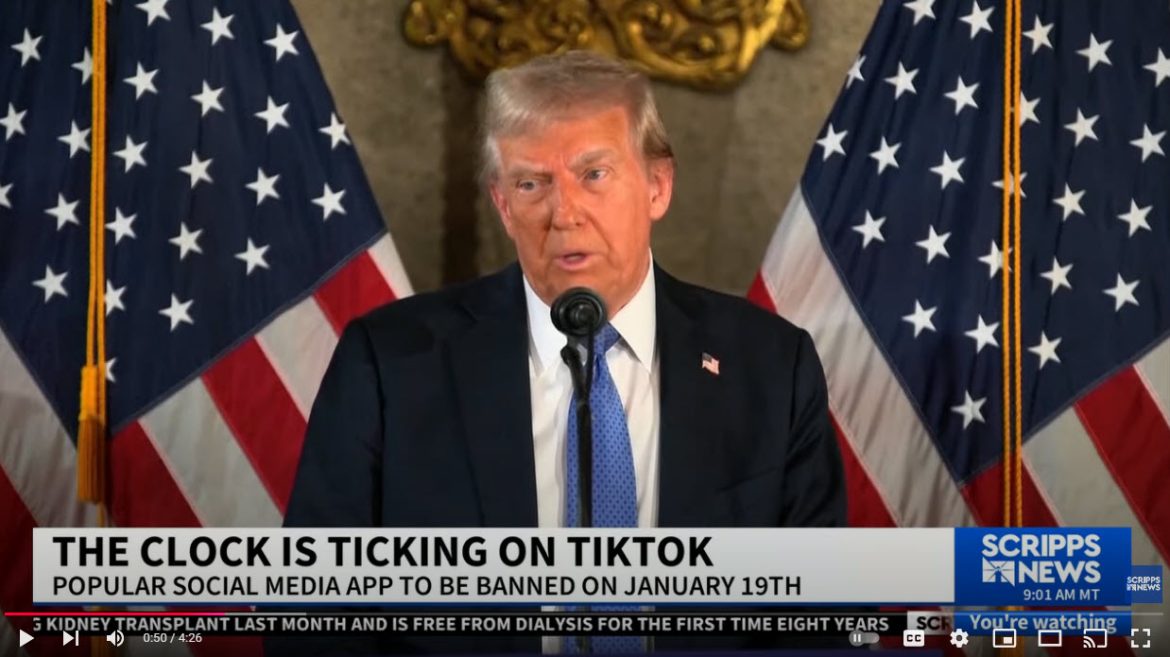TikTok is turning to the U.S. Supreme Court in a last-ditch effort to block a federal law that could ban the app nationwide by January 19th. The law, passed earlier this year, mandates that the Chinese-owned platform divest from its parent company, ByteDance, or face a complete shutdown in the United States. TikTok argues the legislation violates its First Amendment rights, framing the ban as an unconstitutional restriction on free speech for both the company and its millions of American users.
The petition, filed Monday, marks a pivotal escalation in TikTok’s fight to remain operational in the U.S. market. Lawyers for the social media giant assert that Congress’ decision singles out TikTok unfairly, presenting the law as a political maneuver rather than a national security necessity. The app, which boasts over 150 million American users, has become a cultural and economic force, particularly among younger generations.
Meanwhile, President-elect Donald Trump is signaling that he may intervene in the TikTok ban. Speaking from his Mar-a-Lago estate in Palm Beach, Florida, on Monday, Trump acknowledges the platform’s role in reaching young voters during the November election, stating, “TikTok may be a big reason why we saw record support from the youth vote. Millions of people use it, and we can’t ignore its impact.”
Trump’s comments reflect a notable shift from his previous position. During his presidency, Trump also sought to ban TikTok over concerns that its ties to ByteDance posed a risk to U.S. national security by potentially sharing user data with the Chinese government. Now, Trump appears more willing to reconsider the platform’s fate, citing its growing influence on American culture and political engagement.
The law, set to take effect on January 19th, requires ByteDance to sever its ownership of TikTok to continue operating within the U.S. ByteDance has resisted calls to sell the platform, arguing such a move is unfeasible and unnecessary. Supporters of the law, including bipartisan members of Congress, contend that TikTok’s ownership structure presents a national security risk, citing fears of surveillance and data exploitation by the Chinese government.
TikTok’s legal team is urging the Supreme Court to step in before the ban takes effect, emphasizing the potential disruption to businesses, content creators, and millions of users who rely on the app daily. Experts predict the case will test the balance between national security concerns and First Amendment protections in an increasingly digital landscape.
TikTok’s fight has drawn widespread public attention, with creators and small businesses rallying behind the app. For many, TikTok has become a lifeline for marketing, entertainment, and livelihoods, and the looming ban raises concerns about economic fallout.
President-elect Trump’s suggestion of intervention adds a new layer of complexity to the debate. While Trump has not provided details on how he might intervene, his influence as the incoming president could pressure Congress or the courts to reevaluate the law.
As the January deadline approaches, TikTok’s petition to the Supreme Court, paired with Trump’s potential involvement, underscores the high stakes of the battle over the app’s future in the United States. For now, the fate of TikTok—and its tens of millions of American users—hangs in the balance.



